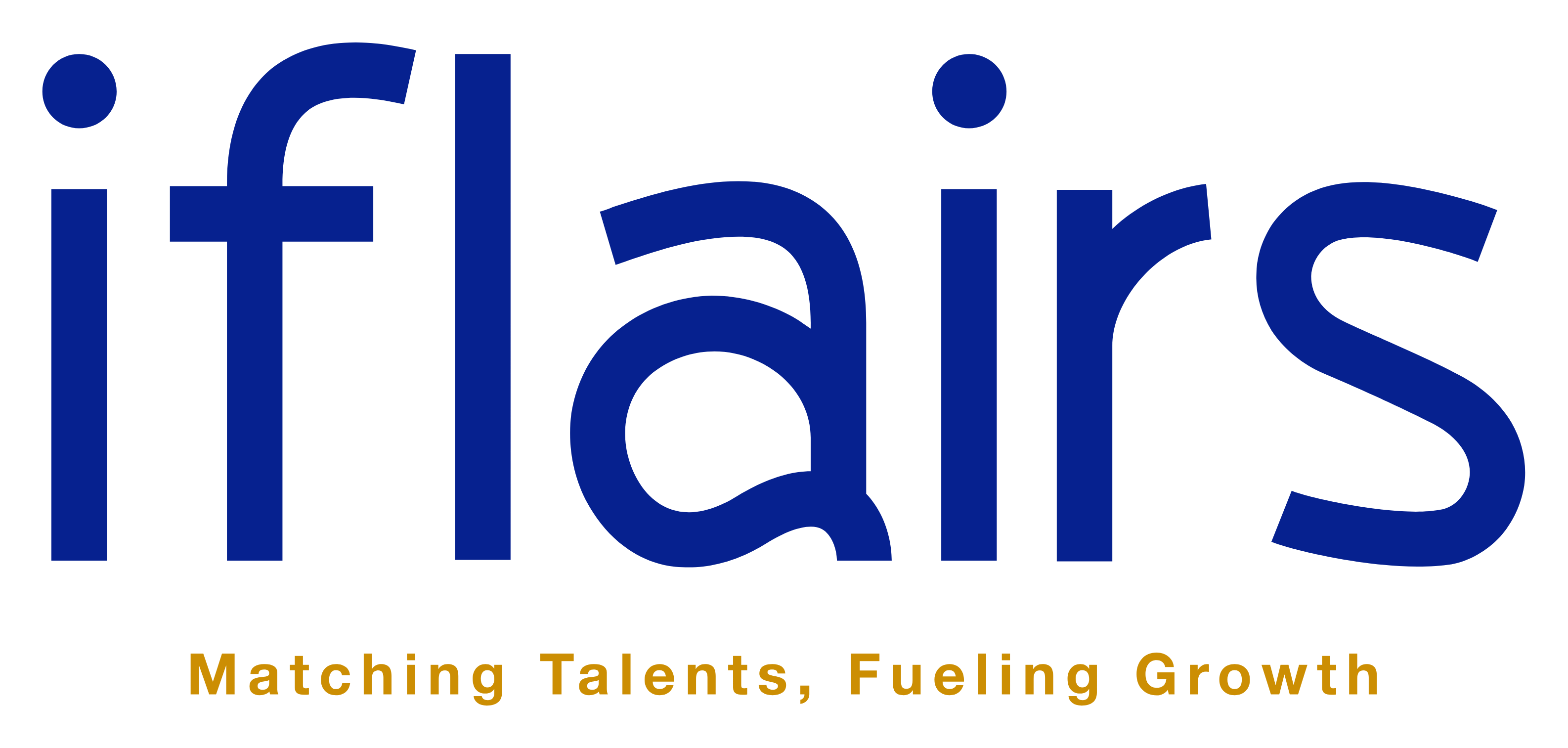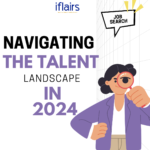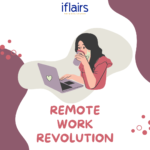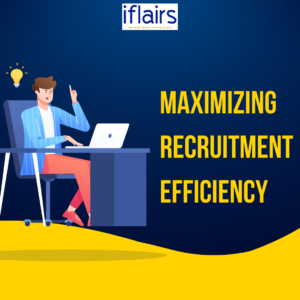 The integration of artificial intelligence (AI) in recruitment has emerged as a game-changer, offering unprecedented efficiency, accuracy, and insights to hiring teams worldwide.
The integration of artificial intelligence (AI) in recruitment has emerged as a game-changer, offering unprecedented efficiency, accuracy, and insights to hiring teams worldwide.
AI technologies such as applicant tracking systems (ATS), chatbots, and predictive analytics are transforming traditional hiring practices, streamlining administrative tasks, enhancing candidate matching, and mitigating biases inherent in the recruitment process.
Please read this Great Recruiters blog about How to Measure and Boost Your Recruitment Efficiency
.
The Transformational Power of AI in Recruitment:
AI technologies have fundamentally reshaped the recruitment landscape, revolutionizing the way organizations identify, engage, and hire top talent. Machine learning algorithms, natural language processing, and predictive analytics are driving this paradigm shift, empowering recruiters with advanced tools and capabilities to navigate the complex hiring ecosystem efficiently.
Applicant tracking systems (ATS) serve as the cornerstone of AI-driven recruitment, automating labor-intensive administrative tasks such as resume screening, candidate sourcing, and interview scheduling.
By leveraging machine learning algorithms, ATS platforms can analyze vast volumes of applicant data, identify relevant keywords and qualifications, and rank candidates based on their suitability for specific roles. This not only expedites the hiring process but also ensures a more objective and standardized approach to candidate evaluation.
In tandem with ATS, AI-powered chatbots have emerged as invaluable assets in candidate engagement and experience. These virtual assistants leverage natural language processing to interact with candidates in real-time, addressing inquiries, providing information about job opportunities, and guiding applicants through the application process seamlessly.
By offering personalized support and instant responses, chatbots enhance the overall candidate experience, leading to higher engagement and satisfaction levels. Moreover, AI-driven predictive analytics empower recruiters to make data-driven decisions throughout the recruitment lifecycle.
By analyzing historical hiring data, market trends, and candidate behaviors, predictive analytics tools enable organizations to forecast hiring needs, identify talent pipelines, and optimize recruitment strategies proactively. This proactive approach not only improves recruitment outcomes but also enhances workforce planning and talent acquisition efficiency.
Benefits of AI in Streamlining the Hiring Process:
The integration of AI in recruitment yields a myriad of benefits, ranging from enhanced efficiency and accuracy to reduced bias and improved candidate experience.
- Administrative Efficiency: AI automates repetitive and time-consuming tasks, such as resume parsing, candidate screening, and interview scheduling, allowing recruiters to allocate their time and resources more strategically. By streamlining administrative workflows, AI enhances operational efficiency and enables hiring teams to focus on high-value activities such as candidate engagement, relationship-building, and talent development.
- Improved Candidate Matching: AI algorithms leverage advanced data analytics to assess candidate qualifications, skills, and cultural fit more effectively. By analyzing historical hiring data, performance metrics, and candidate profiles, AI can identify the most suitable candidates for specific roles, ensuring better alignment between candidate capabilities and job requirements.
This enhances the quality of hires, reduces turnover rates, and fosters long-term organizational success.
- Bias Reduction: One of the most significant advantages of AI in recruitment is its ability to minimize unconscious bias and promote diversity and inclusion. Traditional recruitment processes are susceptible to various forms of bias, including gender, racial, and socio-economic biases, which can inadvertently influence hiring decisions.
AI-driven tools, however, focus solely on job-related criteria, disregarding irrelevant factors such as age, gender, or ethnicity. By adopting a data-driven and objective approach to candidate evaluation, AI helps organizations mitigate biases, foster a more inclusive workplace culture, and build diverse teams that reflect the broader talent pool.
- Enhanced Candidate Experience: AI-powered chatbots play a pivotal role in enhancing the candidate experience by providing immediate and personalized support throughout the recruitment journey. These virtual assistants engage with candidates in real-time, answering queries, providing information about job openings, and guiding applicants through the application process.
By offering timely assistance and seamless communication channels, chatbots reduce candidate frustration, increase engagement levels, and contribute to a positive employer brand perception.
Here’s a link to the recruitment efficiency as shown on the image below.
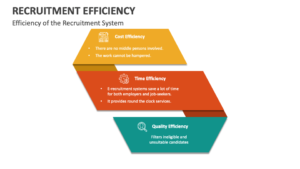
An Illustration of the recruitment efficiency, Source: Collidu
Examples of AI Tools and Platforms in Recruitment:
Numerous AI-driven tools and platforms have emerged to address various aspects of the recruitment process, ranging from candidate sourcing and assessment to onboarding and talent management.
- Lever: Lever’s AI-powered applicant tracking system (ATS) automates resume screening, candidate sourcing, and interview scheduling, enabling recruiters to streamline their hiring workflows and identify top talent efficiently.
Lever leverages machine learning algorithms to analyze candidate data, identify relevant qualifications, and prioritize candidates based on their fit for specific roles. By automating repetitive tasks and providing actionable insights, Lever empowers recruiters to make informed hiring decisions and optimize their recruitment strategies effectively.
- HireVue: HireVue’s AI-driven video interviewing platform revolutionizes candidate assessment and selection, allowing recruiters to evaluate candidates’ skills, personality traits, and cultural fit through video interviews.]
HireVue’s proprietary algorithms analyze candidates’ facial expressions, speech patterns, and non-verbal cues to assess their suitability for specific roles objectively. By leveraging predictive analytics and machine learning, HireVue enables organizations to identify top talent efficiently, reduce time-to-hire, and enhance the overall candidate experience.
- Textio: Textio’s AI-powered writing platform optimizes job descriptions and recruitment messaging to attract diverse and qualified candidates. Textio’s proprietary algorithms analyze language patterns, sentiment, and readability metrics to provide real-time feedback and suggestions for improving job postings.
By leveraging natural language processing (NLP) and machine learning, Textio helps organizations craft compelling job descriptions that resonate with candidates, increase applicant engagement, and enhance the effectiveness of their recruitment campaigns.
- Mya Systems: Mya Systems’ AI-powered chatbot, Mya, revolutionizes candidate engagement and communication throughout the recruitment process. Mya engages with candidates through text or voice conversations, answering inquiries, providing information about job opportunities, and guiding applicants through various stages of the hiring journey.
By offering personalized support and instant responses, Mya enhances the candidate experience, reduces time-to-fill, and improves recruitment efficiency.
Considerations for Implementing AI in Recruitment:
While the benefits of AI in recruitment are undeniable, organizations must consider several key factors when implementing AI-driven solutions to ensure successful outcomes and mitigate potential risks.
- Data Privacy and Security: Organizations must prioritize data privacy and security when implementing AI-driven recruitment solutions. With the collection and processing of vast amounts of candidate data, organizations must adhere to strict data protection regulations, such as GDPR and CCPA, and implement robust security measures to safeguard sensitive information from unauthorized access or breaches.
- Transparency and Accountability: Transparency is essential when leveraging AI in recruitment to maintain candidate trust and ensure ethical practices. Organizations should communicate openly with candidates about the use of AI-driven tools and platforms, providing clear explanations of how AI algorithms are utilized in the recruitment process and the criteria used for candidate evaluation.
By fostering transparency and accountability, organizations can build trust with candidates and demonstrate a commitment to fairness and equity in recruitment.
- Continuous Monitoring and Evaluation: Continuous monitoring and evaluation of AI algorithms are critical to identifying and mitigating biases, errors, or inaccuracies that may arise during the recruitment process.
Organizations should regularly audit AI-driven recruitment systems, assess algorithm performance, and make adjustments as needed to ensure fairness, accuracy, and compliance with organizational policies and legal requirements.
- Human Oversight: While AI can enhance efficiency and accuracy in recruitment, human oversight is indispensable to ensure the ethical use of AI and maintain the human touch in candidate interactions. Recruiters play a vital role in providing context, interpreting results, and making final hiring decisions based on holistic assessments of candidates’ qualifications, experiences, and cultural fit.
By combining the strengths of AI-driven automation with human judgment and intuition, organizations can achieve optimal recruitment outcomes and foster a positive candidate experience.
Conclusion:
In conclusion, the integration of artificial intelligence (AI) in recruitment represents a paradigm shift in the way organizations identify, engage, and hire top talent. By leveraging AI technologies such as applicant tracking systems (ATS), chatbots, and predictive analytics, organizations can streamline their hiring processes, improve candidate matching, and foster diversity and inclusion in the workplace.
However, successful implementation of AI in recruitment requires careful consideration of ethical considerations, data privacy concerns, and the need for human oversight. By embracing AI responsibly and transparently, organizations can unlock unprecedented efficiency, accuracy, and insights in their quest to build high-performing teams and drive organizational success in the digital age.
